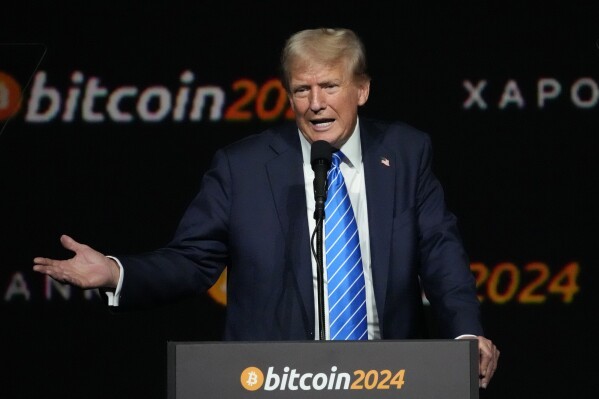
Former President Donald Trump has made several direct statements about his cryptocurrency policy plans should he return to office in 2025. While his past relationship with digital assets has been mixed, his recent campaign promises paint a clearer picture of potential crypto regulation under a second Trump term.
During his 2024 campaign speeches and interviews, Trump outlined specific crypto-focused initiatives he aims to implement. A central promise involves establishing what he calls "a digital dollar that protects American freedom" - though he has emphasized this would be distinct from a Central Bank Digital Currency (CBDC).
Trump has repeatedly voiced strong opposition to CBDCs, warning they could enable government overreach and financial surveillance. He pledged to ban any federal CBDC development if elected, framing it as protection of financial privacy rights.
On cryptocurrency regulation broadly, Trump's statements suggest a relatively hands-off approach focused on preventing fraud while allowing innovation. He has promised to implement "common sense oversight" that would target bad actors without stifling legitimate crypto businesses.
The former president's stance on Bitcoin specifically has evolved since his first term. While he previously expressed skepticism, calling Bitcoin "based on thin air," his recent comments have been more neutral, acknowledging its role in the financial system while maintaining some reservations about volatility.
Regarding stablecoins, Trump has indicated support for allowing private sector development under basic regulatory guardrails. This aligns with his broader economic philosophy of reducing government intervention in markets.
Looking at enforcement, Trump's promises center on cracking down on crypto-related crime and market manipulation. However, he has stressed that enforcement should not impede law-abiding crypto companies and investors.
The campaign has also highlighted plans to engage with industry leaders to develop balanced regulations. Trump has stated he would seek input from both traditional finance experts and crypto innovators when crafting policies.
These stated positions provide insight into potential crypto policy directions under a second Trump administration, though campaign promises don't always translate directly to implemented policies. The crypto industry's rapid evolution could also necessitate adapting these stances to new developments.